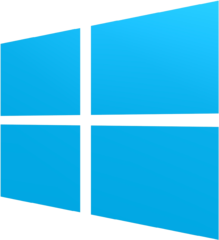 I have been using LibreOffice since it was called Star Office and all documents opened in a tabbed interface, as in most modern spreadsheet applications (anyone remember those days?). From those early days until now, I have considered Star Office/OpenOffice.org/LibreOffice to be an excellent, if not superior, tool compared to many on the market.
I have been using LibreOffice since it was called Star Office and all documents opened in a tabbed interface, as in most modern spreadsheet applications (anyone remember those days?). From those early days until now, I have considered Star Office/OpenOffice.org/LibreOffice to be an excellent, if not superior, tool compared to many on the market.
Don Parris wears a Facility Services cape by day, and transforms into LibreMan at night. He has written numerous articles about free tech, and hangs out with the Cha-Ha crowd, learning about computer security. He also enjoys making ceviche with his wife, and writing about his travels in Perú.


 “We developed Purism so that users can have access to the highest quality computers without compromising these beliefs,” the Purism website states. “The founder of Purism developed the Philosophical Contract, that we all abide by, which was adopted from the Free Software Foundation, and expanded to include hardware manufacturing as it relates to software.”
“We developed Purism so that users can have access to the highest quality computers without compromising these beliefs,” the Purism website states. “The founder of Purism developed the Philosophical Contract, that we all abide by, which was adopted from the Free Software Foundation, and expanded to include hardware manufacturing as it relates to software.”
 The project is called
The project is called  Who would ever think that Capital One, the what’s-in-your-wallet folks, would want to get serious about becoming an open source software developer? After all, it’s a banking institution, and while it’s not hard to imagine a bank would be developing some back end tools to be used in-house or by its clients, it’s not expected that it would spend big bucks publicizing these tools at OSCON.
Who would ever think that Capital One, the what’s-in-your-wallet folks, would want to get serious about becoming an open source software developer? After all, it’s a banking institution, and while it’s not hard to imagine a bank would be developing some back end tools to be used in-house or by its clients, it’s not expected that it would spend big bucks publicizing these tools at OSCON.
 What drives a person to do this? That whole “making my computer do what I want it to do” thing; how does a person even get their head around that in the first place? What was the specific moment in time when a person says, “I want to write software to make my computer do what I want it to do”?
What drives a person to do this? That whole “making my computer do what I want it to do” thing; how does a person even get their head around that in the first place? What was the specific moment in time when a person says, “I want to write software to make my computer do what I want it to do”?
 We learned of this on Friday through Tim Anderson at The Register, who supplied
We learned of this on Friday through Tim Anderson at The Register, who supplied 
 None of them even approach usability for the everyday computer user. None. And you would think that of all these choices, one of them has to work…or provides documentation reasonable enough for everyone. You would think.
None of them even approach usability for the everyday computer user. None. And you would think that of all these choices, one of them has to work…or provides documentation reasonable enough for everyone. You would think.

 It inspires awe how quickly Friday comes along — one minute I’m talking stories for publication with my colleagues Ken Starks and Christine Hall, and the next thing I know, deadlines are poking me in the shoulder and saying, “Well…?”
It inspires awe how quickly Friday comes along — one minute I’m talking stories for publication with my colleagues Ken Starks and Christine Hall, and the next thing I know, deadlines are poking me in the shoulder and saying, “Well…?”
